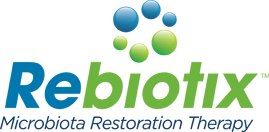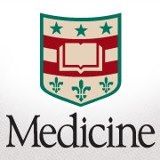Request Demo
Last update 05 Dec 2025

Rebiotix, Inc.
Last update 05 Dec 2025
Overview
Basic Info
Introduction Rebiotix is a company that specializes in creating and marketing medical treatments. Their focus includes human microbiome therapies, as well as treatments for conditions such as clostridium difficile, inflammatory bowel disease or ulcerative colitis, hepatic encephalopathy, multi-drug resistant organism, and microbiota restoration. The company was established in 2011 by Lee A. Jones, Michael Berman, and Erwin A. Kelen, and is based in Roseville, MN. |
Tags
Infectious Diseases
Digestive System Disorders
Nervous System Diseases
Fecal microbiota transplantation
Live biotherapeutic products
Disease domain score
A glimpse into the focused therapeutic areas
No Data
Technology Platform
Most used technologies in drug development
No Data
Targets
Most frequently developed targets
No Data
| Top 5 Drug Type | Count |
|---|---|
| Live biotherapeutic products | 3 |
| Fecal microbiota transplantation | 1 |
Related
4
Drugs associated with Rebiotix, Inc.Target- |
Mechanism Bacteria replacements [+1] |
Active Org. |
Originator Org. |
Active Indication |
Inactive Indication |
Drug Highest PhaseApproved |
First Approval Ctry. / Loc. United States |
First Approval Date30 Nov 2022 |
Target- |
Mechanism Bacteria replacements [+1] |
Active Org. |
Originator Org. |
Active Indication |
Inactive Indication- |
Drug Highest PhaseClinical |
First Approval Ctry. / Loc.- |
First Approval Date- |
Target- |
Mechanism Bacteria replacements [+1] |
Active Org. |
Originator Org. |
Active Indication |
Inactive Indication- |
Drug Highest PhaseClinical |
First Approval Ctry. / Loc.- |
First Approval Date- |
9
Clinical Trials associated with Rebiotix, Inc.NCT04155099
Assessment of Cognitive Ability and the Intestinal Microbiome in Individuals With Liver Disease Before and After Investigational Microbiota Restoration Therapeutic
Individuals with cirrhosis are likely to develop overt hepatic encephalopathy for which diagnostic modalities and treatment options are limited. The purpose of this study is to determine if individuals with cirrhosis who experience hepatic encephalopathy would benefit from investigational microbiota restoration therapy due to their inherent cognitive alterations. Analysis for a correlation between changes in microbiome composition and specific blood biomarkers could allow for earlier diagnosis of HE which could then be treated earlier and with novel treatments.
Start Date01 Mar 2021 |
Sponsor / Collaborator |
NCT03931941
A Phase 3 Open-Label Clinical Study to Evaluate the Safety and Tolerability of Rebiotix RBX2660 (Microbiota Suspension) in Subjects With Recurrent Clostridium Difficile Infection
This is a prospective, multicenter, open-label Phase 3 study of a microbiota suspension of intestinal microbes. Patients who have had at least one recurrence of CDI after a primary episode and have completed at least one round of standard-of-care oral antibiotic therapy or have had at least two episodes of severe CDI resulting in hospitalization may be eligible for the study. Subjects may receive a second RBX2660 enema if they are deemed treatment failures following the initial enema per the protocol-specified treatment failure definition.
Start Date30 Jul 2019 |
Sponsor / Collaborator |
NCT03367910
Fecal Microbiota Transplantation Using RBX2660 for the Prevention of Recurrent Urinary Tract Infections Due to Multidrug Resistant Organisms
The purpose of this study is to determine the safety and impact of fecal microbiota transplantation (FMT) on the fecal and urine microbiome, urine metabolome, risk of recurrent urinary tract infection (UTI), and persistent multidrug resistant organism (MDRO) colonization of patients with a history of recurrent MDRO UTIs. This is an open label phase 1-2 study.
Start Date08 Feb 2018 |
Sponsor / Collaborator |
100 Clinical Results associated with Rebiotix, Inc.
Login to view more data
0 Patents (Medical) associated with Rebiotix, Inc.
Login to view more data
8
Literatures (Medical) associated with Rebiotix, Inc.28 Jun 2024·Open Forum Infectious Diseases
Efficacy of Fecal Microbiota, Live-jslm (REBYOTA®), Among Patients Exposed to Non–Clostridioides difficile Infection Antibiotics: Post Hoc Subgroup Analysis of a Phase 2 Open-Label Study
Article
Author: Golan, Yoav ; Skinner, Andrew M ; Guthmueller, Beth ; Alonso, Carolyn D ; Crawford, Carl V ; Tan, Xing ; Gonzales-Luna, Anne J ; Bidell, Monique R ; Reveles, Kelly R ; Pokhilko, Victoria
Abstract:
Background:
Antibiotic use is a major risk factor for recurrent Clostridioides difficile infection (CDI) due to the associated disruption in gut microbiota. Fecal microbiota, live-jslm (REBYOTA®; RBL, previously RBX2660), is the first microbiota-based live biotherapeutic approved by the US Food and Drug Administration to prevent recurrent CDI in adults following standard-of-care antibiotic treatment. To investigate the impact of non-CDI antibiotics on the durability of RBL, a subgroup analysis was conducted on PUNCH™ Open-Label study participants who received non-CDI antibiotics during the period between RBL administration and up to 2 years after.
Methods:
Participants in PUNCH™ Open-Label who received non-CDI antibiotics after RBL administration were included in this subgroup analysis. Treatment response was defined as the absence of CDI diarrhea needing retreatment at the last evaluable time point (8 weeks, 6 months, 1 year, or 2 years) after RBL administration.
Results:
Among participants from PUNCH™ Open-Label, 43 received non-CDI antibiotics after RBL administration but before CDI recurrence as evaluated over a 2-year period. Across all evaluable time points, 86% (37/43) of participants had a treatment response regardless of when non-CDI antibiotic exposure occurred. Treatment response was sustained for a median 470 days (IQR, 212–648) from the first day of non-CDI antibiotic use. Most participants (5/6) with CDI recurrences received a high-risk antibiotic.
Conclusions:
RBL remained efficacious in participants with a history of recurrent CDI after subsequent non-CDI antibiotic exposure.
Clinical Trials Registration:
NCT02589847 (https://clinicaltrials.gov/study/NCT02589847).
01 Sep 2023·Open forum infectious diseases
Two-year durability of REBYOTA™ (RBL), a live biotherapeutic for the prevention of recurrent Clostridioides difficile infections
Article
Author: Tillotson, Glenn ; Khanna, Sahil ; Harvey, Adam ; Orenstein, Robert ; Hecht, Gail
04 Jan 2023·Open forum infectious diseases
Microbiota-Based Live Biotherapeutic RBX2660 for the Reduction of Recurrent Clostridioides difficile Infection in Older Adults With Underlying Comorbidities
Article
Author: Ng, Samson ; Bancke, Lindy ; Ando, Masakazu ; Feuerstadt, Paul ; Harvey, Adam ; Archbald-Pannone, Laurie ; Johnson, Stuart ; Tillotson, Glenn
Abstract:
Background:
Advanced age and underlying comorbidities are associated with greater rates of recurrence in patients with Clostridioides difficile infection (CDI). Reducing the likelihood of recurrence through treatment with an antimicrobial followed by a microbiota replacement therapy can decrease the burden of this infection and improve patient outcomes. We report the efficacy and safety of RBX2660, a microbiota-based live biotherapeutic, in older adults with recurrent CDI, grouped by comorbidities.
Methods:
In this post hoc subgroup analysis of the PUNCH CD3 trial, we assessed outcomes in older adults (age ≥65 years) grouped by Charlson Comorbidity Index severity scores at screening (moderate [3–4] and severe [≥5]) and by the presence of underlying cardiac, renal, or gastrointestinal disorders.
Results:
RBX2660 treatment success rates in older adults with comorbidities were consistent across subgroups and similar to those in the total RBX2660-treated population. A greater percentage of RBX2660-treated older adults remained free of CDI recurrence through 8 weeks following treatment compared with placebo-treated participants in all but 2 subgroups assessed. Across all subgroups, most treatment-emergent adverse events (TEAEs) were mild or moderate in severity and related to a preexisting condition. None of the serious or life-threatening TEAEs that occurred were related to RBX2660 or its administration. Occurrence of TEAEs did not cluster in any subgroup.
Conclusions:
RBX2660 is efficacious and safe in older adults with recurrent CDI and underlying comorbidities.
35
News (Medical) associated with Rebiotix, Inc.01 Oct 2024
To avoid the pitfalls of microbiome drug development, Florey is aiming to get FLR-101 into the world as a medical food instead.
Antibiotics are one of the most common medicines in the world, with about 236 million prescriptions in the U.S. in 2022 alone, according to the Centers for Disease Control and Prevention. These drugs are great for clearing out bacterial infections but also have an unintended side effect: They wreak havoc on the healthy microbes that call our guts home.“There's a lot of research and clinical data that shows that the disruption of the beneficial microbes in your gut actually is a high risk factor for many diseases,” Andrés Cubillos-Ruiz, Ph.D., a microbiologist and synthetic biologist at the Wyss Institute for Biologically Inspired Engineering at Harvard University, told Fierce Biotech in an interview. “This is a huge problem that is still a highly unmet need.”Florey Biosciences, a company spun out of Cubillos-Ruiz’s work in the MIT and Wyss Institute lab of James Collins, Ph.D., seeks to fill this unmet need with genetically modified microbes and a unique regulatory approach. The company launched Oct. 1 with pre-seed funding from Seerave Ventures, the investment arm of the microbiome-focused Seerave Foundation, according to a release. The team hopes to close out a seed funding round by mid-2025, Cubillos-Ruiz said. In addition to Cubillos-Ruiz, who is CEO, and Collins, Raphaël Gayet, Ph.D., is also a co-founder. Collins is a synthetic biologist known for his entrepreneurial spirit; he’s a co-founder of the Flagship Pioneering-launched Cellarity as well as the publicly traded Synlogic Therapeutics and Senti Biosciences, among others.Florey’s lead program is a genetically modified yeast called FLR-101. This yeast produces an enzyme that breaks down beta-lactam antibiotics, which make up about 50% of all antibiotics used, Cubillos-Ruiz said. Because the yeast is localized to the gut, its anti-antibiotic activity shields the microbiome there while the antibiotic is still able to clear an infection elsewhere in the body. The team first tested this approach using modified bacteria in a 2022 paper, and has now improved upon the method.“We have technologies that prevent these genes from jumping into bacteria,” Cubillos-Ruiz said, so that the yeast’s antibiotic-destroying power can’t be picked up by other microbes.When it came to forming a strategy for Florey, Cubillos-Ruiz learned from predecessors like Seres Therapeutics and Rebiotix (acquired by Ferring Pharma) about the perils of developing drugs for the microbiome. “You were going to incur huge development costs, and then you're going to create a product that doesn't have the market access and the market opportunity,” he said. To avoid those pitfalls, Florey is aiming to get FLR-101 into the world as a medical food instead of as a drug.Medical foods are products that are meant to be taken orally for the management of a disease or condition under the supervision of a physician but that don’t require a prescription. While drugs require studies of safety and efficacy, reporting of side effects and a thorough label review before hitting the market, medical foods do not.There is no formal stamp of approval that the FDA gives to medical foods, but the agency does provide guidelines for the products. Once FLR-101 is recognized as safe to consume, it could be put on the market right away along with the countless other probiotics that claim to support gut health.However, in order to market the modified yeast as being able to manage the microbiome dysfunction that comes from antibiotic use, Florey plans to run human trials to test whether FLR-101 paired with antibiotics leads to less microbiome damage than antibiotics alone. If successful, Florey would be able to add that information to FLR-101’s label and distinguish it from the other probiotics alongside it on the shelf. To bolster FLR-101’s chances of successfully navigating the medical foods regulatory pathway, Florey is adding Peter Hutt, former chief counsel of the FDA, to its board of directors, the company said in the release. At the FDA, Hutt helped craft the medical food regulatory framework, and he also played a pivotal role in the creation of nutrition labels, according to the release.“We have all the pieces of the puzzle to have a biotech product that, in its core, its technology is highly advanced, but we can put it in the market using different ways,” Cubillos-Ruiz said.Putting out products as consumer goods rather than prescription drugs presents a marketing challenge: How do you make sure patients, physicians and pharmacists know about your product? Cubillos-Ruiz sees an opportunity in FLR-101’s partner, antibiotics.“There is a big push from government agencies and within medical societies to be better antibiotic stewards,” he said. Hospitals don’t want readmissions of patients who develop health problems due to antibiotic-weakened gut microbiomes, and antibiotics tend to have slim profit margins. Pairing the drugs with a proven probiotic could be a way to boost revenues, Cubillos-Ruiz suggested.The company is currently preparing in vivo safety studies in preparation for human trials, Florey said in the release. If all goes well, Florey hopes to launch its flagship product in three years, Cubillos-Ruiz said.First-time biotech CEO Cubillos-Ruiz thinks that in 10 years, we’ll all look back and wonder how we could let antibiotics run roughshod over our gut microbes for so long. It will be like “going to a beach day and not using sunscreen to protect yourself from the sun,” he said.
23 Sep 2024
European Microbiome Innovation for Health and Microbiome Therapeutics Innovation Group Announce New Collaboration Agreement Paris, France, September 23, 2024, 2:00 pm CET - The European Microbiome Innovation for Health (EMIH) association today announced an agreement between the Microbiome Therapeutics Innovation Group (MTIG) and EMIH for a collaboration to advance microbiome drug development, explore synergies between international regulators, and convene cross-continental meetings to incorporate the perspectives of a wide-range of drug developers. This new collaboration will incorporate diverse perspectives with the goal of further accelerating microbiome therapeutic product development to expand availability of life-changing and life-saving regulatory approved microbiome therapies to patients. A main priority of the agreement is to harmonize regulatory frameworks from multiple regions to create a more cohesive approach in seeking the necessary policy and regulatory solutions for the issues faced by MT drug developers. “MTIG’s founding principal is to accelerate patients’ access to innovative microbiome therapeutics through our communal efforts,” said Dr. Nikole Kimes, Chairman of MTIG and CEO of Siolta Therapeutics. “The EMIH represents innovative microbiome companies aligned with this core mission, and we look forward to sharing insights with one another to amplify our collective voice and transform the lives of patients on both sides of the Atlantic.” Hervé Affagard, President of EMIH and CEO and co-founder of MaaT Pharma, stated "As leading associations in the microbiome field, we understand that our strength lies in collaboration. By joining forces with MTIG, we will accelerate the development and delivery of microbiome therapies, ensuring that groundbreaking treatments reach those who need them most, swiftly and safely. This partnership embodies our shared commitment to harmonizing regulatory frameworks, and we look forward to working closely with MTIG." EMIH and its members are dedicated to advancing knowledge and fostering the development of bioproductions, diagnostics, and medical devices based on the microbiome for human health. The organization is committed to ensuring equitable access to these innovations by adhering to regulatory frameworks that uphold the highest quality standards, while maintaining an economic balance to support ongoing therapeutic innovation. All pharmaceutical and biotechnology companies seeking regulatory approvals in Europe for microbiome bioproductions, diagnostics, and medical devices are eligible for membership consideration in EMIH. If you are interested in learning more, please contact EMIH here. About The Microbiome Therapeutics Innovation Group The Microbiome Therapeutics Innovation Group (MTIG) is a coalition of companies leading the research and development of FDA-approved microbiome therapeutics and microbiome-based products to address unmet medical needs, improve clinical outcomes, and reduce health care costs. The human microbiome is one of the new frontiers of medical innovation that has the potential to benefit patients suffering from numerous diseases afflicting millions of patients and consuming billions of dollars of healthcare resources. MTIG is committed to working with stakeholders who share in our mission and seek tangible policy and regulatory solutions in the emerging microbiome arena. Through a collective voice, the MTIG membership works together to enhance the regulatory, investment, and commercial environment to accelerate microbiome therapeutic product development and enable the field to reach its potential to benefit patients. Today, MTIG is comprised of eleven microbiome therapeutics companies: BiomeSense, Biose Industrie, Freya Biosciences, MaaT Pharma, Microba Life Sciences, Rebiotix Inc., a Ferring Company, Seres Therapeutics, Siolta Therapeutics, and Vedanta Biosciences. For more information, visit www.microbiometig.org About European Microbiome Innovation for Health The European Microbiome Innovation for Health (EMIH) is an independent coalition within the European Union, the United Kingdom, and Switzerland, currently comprising 20+ major players from the public and private sectors. From the laboratory to the patient’s bedside, EMIH covers the entire value chain of the microbiome industry. Its goal is to position Europe as a global leader in the development, production, and commercialization of microbiome-based therapeutic innovations. EMIH members include Bioaster, Biocodex, BioGaia, Biofortis, Biose Industrie, Eligo Bioscience, GMT Science, INRAe, Lallemand Health Solutions, Life Avocats, Enosis Santé, EnteroBiotix, Pelican Health, MaaT Pharma, mbiomics, Microbiotica, Microbiome Foundation, MRM Health, Nexbiome, Novobiome, Seventure Partners and SwipeBiome. For more information, please visit www.europeanmicrobiome.org Contact for European Microbiome Innovation for Health Email: p.richaud@europeanmicrobiome.org
Attachment
EMIH MTIG PR Final_240923
Microbial therapy
12 Dec 2023
The company is laying off 79 staffers at its New Jersey headquarters, plus 55 at its Minnesota microbiome hub.
As waves of layoffs continue to hit the biopharma industry, Ferring Pharmaceuticals is trimming its headcount by 134 across its two U.S. locations.
Ferring’s U.S. headquarters in Parsippany, New Jersey, will see 79 job cuts by March 5, 2024, according to a recent Worker Adjustment and Retraining Notification (WARN) notice. In addition, 55 employees at the company’s Roseville, Minnesota, microbiome hub will be laid off by February 5.
The company has "optimized resources to align with its revised business strategy," a Ferring spokesperson said in an emailed statement. "Following redeployments, this has resulted in a limited number of job reductions."
Ferring's 25-acre facility in New Jersey currently employs 500 workers across manufacturing, commercial, clinical development, management and administration functions.
Meanwhile, Ferring’s Roseville location is the home of Ferring’s Rebiotix subsidiary and its microbiome team. The center houses a pipeline of investigational meds made through its microbiota restoration therapy (MRT) drug platform.
The 55 staffers impacted at that site make up about a quarter of the location's total staff, Minnesota broadcaster KSTP-TV reports.
Ferring took Rebiotix under its wing in 2018. Years later, the company's Clostridium difficile treatment Rebyoa won approval in late 2022 as a one-time, enema-delivered therapy that restores proper bacterial balance in the digestive system.
Rebyota put Ferring’s microbiome expertise on the map as the first FDA-approved fecal microbiota product, a development that could pave the way for similar products.
More recently, the drugmaker linked up with microbiome translation company PharmaBiome in a research and development partnership that gives Ferring exclusive rights to “next generation microbiome-based therapeutics within the field of gastroenterology arising out of the collaboration,” Ferring said in a recent press release.
The company is also continuing to roll out its bladder cancer gene therapy Adstiladrin, which is the first to target high-risk and non-muscle invasive bladder cancer in patients who no longer respond to standard therapy. Ferring dosed the first patient in September through its early experience program, which is meant to ensure patients can complete their entire treatment regimen during a manufacturing scale-up.

Microbial therapy
100 Deals associated with Rebiotix, Inc.
Login to view more data
100 Translational Medicine associated with Rebiotix, Inc.
Login to view more data
Corporation Tree
Boost your research with our corporation tree data.
login
or

Pipeline
Pipeline Snapshot as of 03 Mar 2026
The statistics for drugs in the Pipeline is the current organization and its subsidiaries are counted as organizations,Early Phase 1 is incorporated into Phase 1, Phase 1/2 is incorporated into phase 2, and phase 2/3 is incorporated into phase 3
Preclinical
1
1
Phase 3
Other
5
Login to view more data
Current Projects
| Drug(Targets) | Indications | Global Highest Phase |
|---|---|---|
Fecal microbiota, live-jslm(University of Alberta) | Communicable Diseases, Imported More | Phase 3 |
RBX-2477 | Hepatic Encephalopathy More | Clinical |
RBX-8225 | Colitis, Ulcerative More | Clinical |
RBX-6376 | Bacterial Infections More | Preclinical |
RBX-7455 | Liver Cirrhosis More | Discontinued |
Login to view more data
Deal
Boost your decision using our deal data.
login
or

Translational Medicine
Boost your research with our translational medicine data.
login
or

Profit
Explore the financial positions of over 360K organizations with Synapse.
login
or

Grant & Funding(NIH)
Access more than 2 million grant and funding information to elevate your research journey.
login
or

Investment
Gain insights on the latest company investments from start-ups to established corporations.
login
or

Financing
Unearth financing trends to validate and advance investment opportunities.
login
or

AI Agents Built for Biopharma Breakthroughs
Accelerate discovery. Empower decisions. Transform outcomes.
Get started for free today!
Accelerate Strategic R&D decision making with Synapse, PatSnap’s AI-powered Connected Innovation Intelligence Platform Built for Life Sciences Professionals.
Start your data trial now!
Synapse data is also accessible to external entities via APIs or data packages. Empower better decisions with the latest in pharmaceutical intelligence.
Bio
Bio Sequences Search & Analysis
Sign up for free
Chemical
Chemical Structures Search & Analysis
Sign up for free


